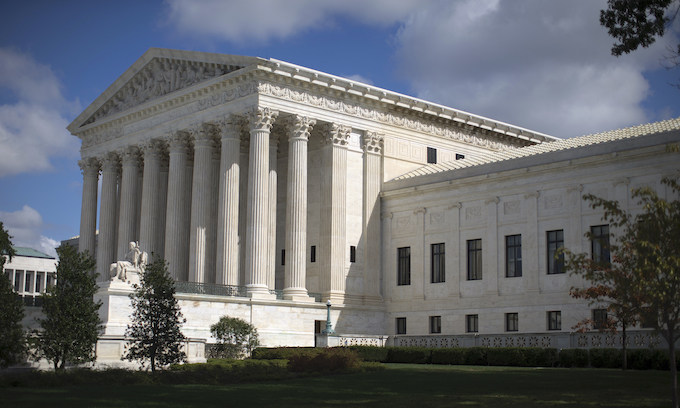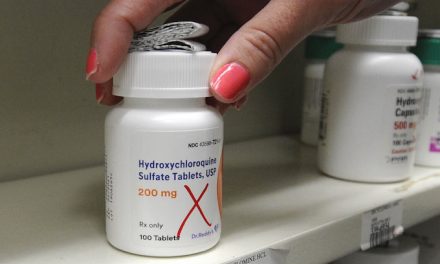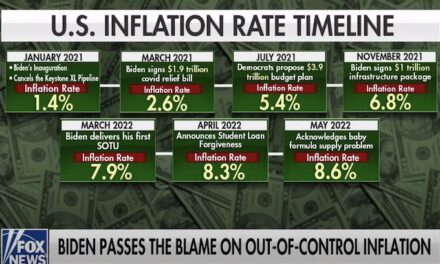The U.S. Supreme Court will hear a case on Tuesday that would allow shorter sentences for people who have been convicted on low-level crack cocaine charges.
The case comes after President Joe Biden’s administration urged the court to allow more people to be reclassified under the First Step Act, a 2018 law that sought to reduce many lower-level drug sentences.
The First Step Act was adopted to address racial disparities caused by a 34-year-old federal law.
Congress passed a law in 1986 that gave persons arrested with a small amount of crack cocaine a longer sentence than someone with powder cocaine. The bill punished those caught in possession of one gram of crack the same as if they’d been busted with 100 grams of the drug in powder form.
A 2010 law sought to correct the disparity, but was not retroactive. It reduced the ratio to 18 to 1 rather than 100 to 1. But many people sentenced between 1986 and 2010 remained in prison, and serving longer sentences under more punitive laws.
Former President Donald Trump signed the First Step Act into law, but his administration wanted a narrow application in the case now before the court. On March 15, the Biden administration reversed that position.
The Supreme Court case involves Tarahrick Terry, a 33-year-old Florida man who pleaded guilty to a drug charge after being caught in Miami with about 4 grams of crack in 2008. he was sentenced to 15 years in prison and is scheduled for release in September.
A federal appeals court ruled that Terry wasn’t covered by the First Step Act, saying the law only applied to people convicted of possessing larger amounts.
Acting Solicitor General Elizabeth Prelogar said low-level offenders were meant to be included in the 2018 law. She added that the lower court ruling would undermine Congress’ intent and affect a significant class of offenders.
A bipartisan coalition of senators, attorneys general and advocacy groups have urged the high court to rule in Terry’s favor and include low-level offenders in the First Step Act.
The Biden administration’s change in position forced the appointment of Adam Mortara, an outside attorney who will argue against the reduced sentences.
Mortara is expected to argue that Terry and others in his situation already had a chance to advocate for shorter prison terms before a commission that issues guidelines for federal sentences. The commission incorporated the lower ratio of 18 to 1 in 2011.
“Congress and the commission together actually treated the lowest-level crack dealers best because they obtained relief nearly 10 years ago,” Mortara said, according to Bloomberg.
Copyright 2021 United Press International, Inc. (UPI). Any reproduction, republication, redistribution and/or modification of any UPI content is expressly prohibited without UPI’s prior written consent.
—-
This content is published through a licensing agreement with Acquire Media using its NewsEdge technology.



















I believe Joe, that is the JOB of the Congressmen and Congresswomen , also the Senators to write or change the LAWS .
IT IS, but the left LOVES USING the courts to do their work for them.
they are not low level crimes. they are plea bargained down from heinous crimes of rape and attempted murder and assault with a deadly weapon to these ridiculous so called low levels of criminality. then the fake president and this fake administration that hates America comes along to make sure that even more heinous criminals are out on our streets without any interference from law enforcement. this tyranny has to end. you can’t vote out tyranny. we better think of something else.
I often wonder, WHAT DOLT thought it was a great idea to even LET FELONS PLEA bargain their sentence down,
Yep, Supreme Court, let all of the criminals out of prison. Letting criminals on the streets will certainly be good for law abiding citizens.
THEN LETS release all these felons, INTO THE HOMES OF everyone of these judges and politicians (and activists) PUSHING FOR THIS nonsense.. ANd then wall OFF said properties!
Sounds like Hunter has someone in his corner for sure!!
It was Joe Biden’s law 34 years ago that gave blacks a much longer prison sentence than whites for essentially the same crime. Looks like he is now defending his legacy of “systemic” racism. Wonder how many black Americans feel cheated for voting for Biden and Harris when it was Trump’s actions that showed he was interested in equality.
Did we ever get conned by Kavanaugh, Gorsuch, and Barrett—and Roberts.
IT certainly is looking more and more like ALL THREE, conned the hell out of not only Trump, but WE THE PEOPLE…